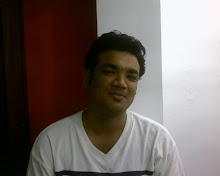Tuesday, December 2, 2008
MARRY FOR LOVE
Indian youth haven't fully embraced Western ways. Tradition still dictates much of daily life. But progressive influences are everywhere. Take the tradition of arranged marriages, where parents chose children's spouses, often without their consent. Now young people want to marry for love--but also want parents' approval.The younger generation is nationalistic. In a recent survey by ad agency McCann-Erickson Asia-Pacific, Asian youth around the region voted Paris, London, and New York as the ''coolest'' cities. But young Indians voted for Bombay, along with New York. ''India has the best mix of people and cultures you can find,'' says Gaurav Kumar, 16, of Bangalore, India's Silicon Valley. ''We should take the best of both worlds.''Kumar wants to be an aviation engineer. Along with half his graduating class, he intends to take the tough exam for the Indian Institute of Technology, a system of prestigious, high-tech universities. The most sought-after field: computer science. ''It's almost a religion with young people,'' says Hema Ravichander, head of human resources for Infosys, which gets 280,000 job applicants every year.Private computer training institutes are working to fill the demand. Just in the past three years, the New Delhi-based National Institute of Information Technology (NIIT) and Bombay-based Aptech have expanded their franchises to 2,500 training centers in 300 cities and towns in India. ''These kids have a deep desire to uplift themselves and their families,'' says Rajendra Pawar, who co-founded NIIT in 1981.Companies are reaching out to the computer-literate young. Koshika, the cellular phone service provider in Bihar and Uttar Pradesh, India's poorest states, is using young people to develop an e-mail service. The company approached people who operate cellular phones as public services for their villages. It then sold them computers at a hefty discount and taught their children to use the Internet. For a fee, they offer e-mail services. Since most village families have members working in Persian Gulf states, they are starting to use e-mail to communicate, since it is cheaper than a telephone and faster than sending a letter.For the boys of the village, such opportunities are a great incentive for staying home rather than moving to the cities. Bunty Garg, from the town of Punnhana in Uttar Pradesh, was regarded as a ne'er-do-well by his father, who owns the local fabric store. That was until Bunty set up a public cell phone. Bunty, 22, now has seven public phone booths, his own car, and the biggest home in town.The danger for India is, of course, that the potent mixture of aspirations created by TV, computers, and marketers in the hearts of India's young could overheat, and the social cauldron could boil over. Some researchers also worry about rising aspirations colliding with the realities of Indian poverty. ''The young generation may want more,'' says Indrani Vidyarthi of ORG-MARG, India's premier market research agency. ''But how to get more when there ain't more?'' Indeed, almost 60% of rural Indian households have no electricity. ''How will they run computers?'' asks Rakesh Mohan, director of the National Council for Applied Economic Research in New Delhi.But Mohan may be underestimating the pragmatism and ambition of India's liberalization generation. Young Indians are not pessimistic. ''Our lives are in the fast lane,'' says Bangalore schoolboy Gaurav. ''We can cope; we have to.'' With luck, they'll not only cope--they'll thrive.
Subscribe to:
Post Comments (Atom)




No comments:
Post a Comment